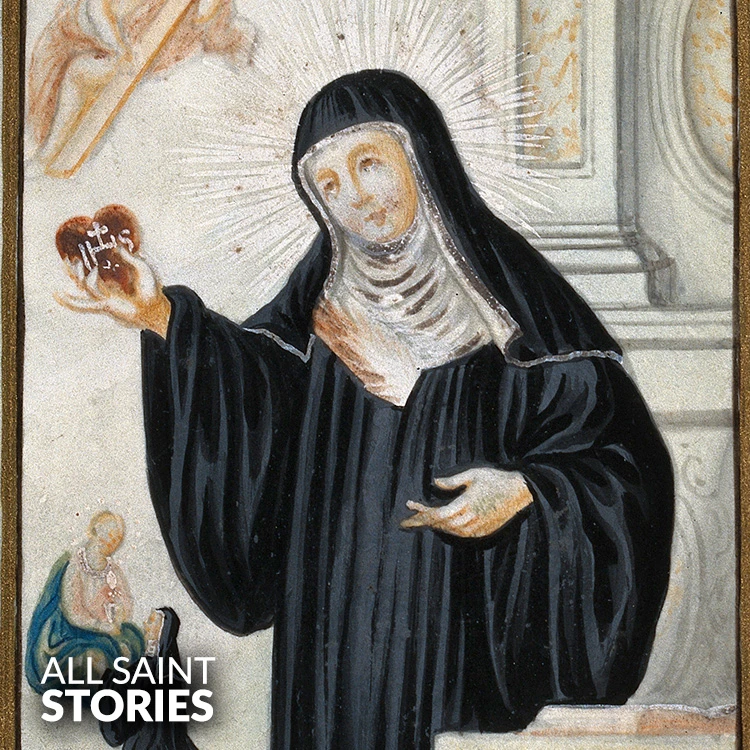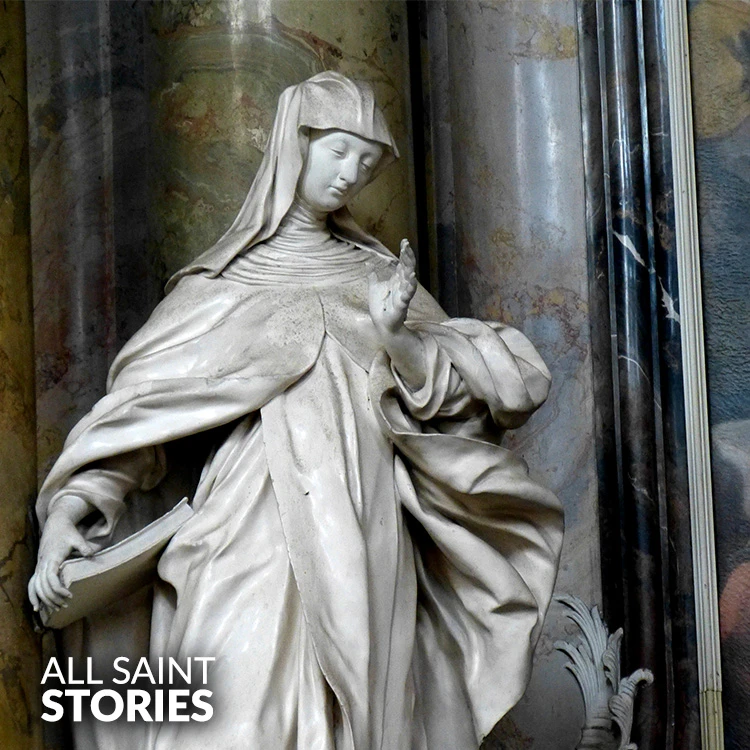St. Mechtilde, through your writings and prayers, you taught us to unite our hearts with Christ’s sacred love. Help us, O holy one, to deepen our relationship with God and to live in union with His will. May your example of devotion, humility, and love inspire us to seek God in all things and serve Him with purity of heart. Amen.
ST. MECHTILDE OF HACKEBORN
ST. MECHTILDE OF HACKEBORN

St. Mechtilde of Hackeborn was a German mystic and Benedictine nun who is known for her deep spirituality and the visionary writings she left behind, which have guided many in their spiritual journey.
St. Mechtilde of Hackeborn was born in 1241 in the region of what is now modern-day Germany. From an early age, she exhibited a deep devotion to God and a yearning for a religious life. As a young woman, she entered the Benedictine convent at the monastery of Helfta, where she would spend most of her life. The monastery was known for its deep spiritual atmosphere, and it was here that St. Mechtilde, alongside other famous mystics like St. Gertrude the Great, became immersed in a life of prayer and contemplation.
St. Mechtilde was a visionary and mystic, renowned for her intense spiritual experiences and revelations. These divine encounters were often centered on the love of Christ, and she dedicated her life to living in accordance with the mystical truths she experienced. Throughout her time at the convent, she was known for her humility and devotion to the monastic life, following the Rule of St. Benedict with great fidelity.
One of her most notable contributions to the Church is her spiritual writings, which include visions and meditations on the sacred mysteries of Christ’s passion and love. These writings, compiled by St. Mechtilde herself and later by her sisters, offer profound insights into the depths of spiritual life and the soul’s union with God. Her works were not widely recognized during her lifetime but gained prominence after her death, particularly as the mystic tradition in the Church grew.
St. Mechtilde's spirituality emphasized the importance of contemplating Christ's love, especially through His passion, and calling others to a deeper awareness of this love. Her meditations were often filled with fervent prayers to Christ, asking for His mercy and grace for herself and others.
St. Mechtilde died on November 19, 1298, and was buried at the Buxheim Abbey, Germany. She was remembered for her deep spirituality, her gift of mysticism, and her loving devotion to the Church. Though she was not canonized by the official process during her lifetime, her influence on mystical theology and her example of love and devotion to God continue to be honored.
Video Not Found
The information you see here may be either accurate or might contain some discrepancies, as it is gathered from various sources. If you believe that any part of the details about this saint is incorrect or incomplete, we kindly invite you to share your suggestions or corrections with us. Your insights are invaluable in helping us ensure that we provide the most accurate and reliable information.
We encourage you to use the form on the left to submit any corrections or additional information you may have. Whether it's a small detail or a larger correction, we will carefully review your submission and update the information accordingly. Your contributions will not only help us maintain the integrity of the content but also benefit others who seek to learn more about this saint. We greatly appreciate your assistance in making our information more accurate and complete.
Please rest assured that your personal details will remain confidential, and your suggestions will be handled with the utmost care. Together, we can ensure that the information about this saint is as accurate and informative as possible. Thank you for your time and contribution!
If you have any suggestion about ST. MECHTILDE OF HACKEBORN
Your suggestion will help improve the information about this saint. Your details will not be disclosed anywhere.
© 2025 Copyright @ www.allsaintstories.com



 English
English
 Italian
Italian
 French
French
 Spanish
Spanish
 Malayalam
Malayalam
 Russian
Russian
 Korean
Korean
 Sinhala
Sinhala
 Japanese
Japanese
 Arabic
Arabic
 Portuguese
Portuguese
 Bantu
Bantu
 Greek
Greek
 German
German
 Dutch
Dutch